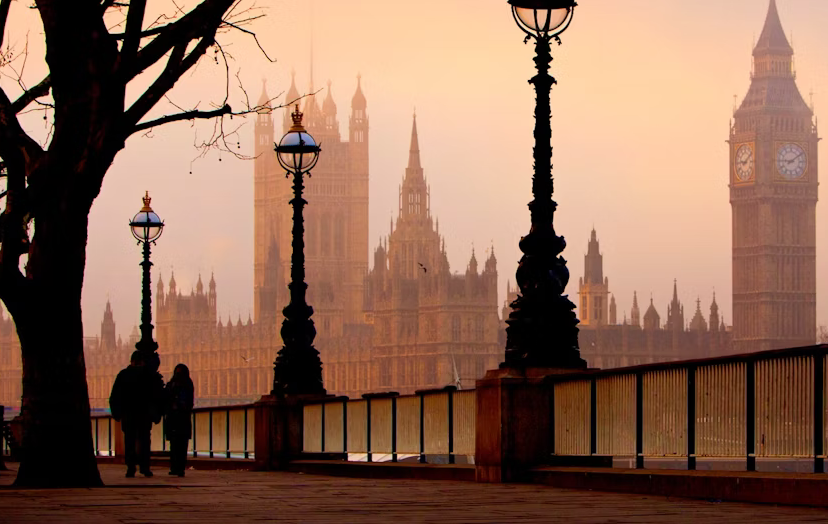The Equality Act (H.R. 5) would be devastating to all who cherish religious liberty and all who dissent from the latest cultural understandings on gender and human sexuality. The bill also represents a dramatic expansion of government power that cannot possibly be justified by the realities of contemporary American society.
At first glance, such a characterization of the Equality Act may seem unfounded. Why should people who identify as LGBTQ not be protected from discrimination? The answer is not nearly as straightforward as it might seem.
First, LGBTQ people enjoy the full protections of existing civil rights law. Second, LGBTQ people are denied goods or services today in a very narrow set of cases in which the denial is based on certain expressions and conduct rather than identity. As a result, the Equality Act would amount to government granting special privileges to certain views on sex and gender rather than affording needed protections to those who identify as sexual minorities.
The bill’s reach is vast. It would amend existing federal civil rights law, such as the Civil Rights Act of 1964 and the Fair Housing Act, to forbid discrimination based on sexual orientation and gender identity (SOGI) in voting, public accommodations, education, employment, housing, and more.
The precise meaning and scope of SOGI remain contested, however, in American law and culture, and what it means to discriminate on one of these bases rarely receives adequate scrutiny. Confusion and obfuscation on this front are a big part of the problem. A closer look reveals that SOGI laws, by their nature, impinge on the religious liberty of those who believe in traditional sexual morality because the associated LGBTQ identities, uniquely, encompass expressions and conduct. These identities, then, have the potential to implicate moral teachings in ways that other protected classes, such as race, ethnicity, and national origin, do not.
SOGI laws, of which the Equality Act would be the preeminent expression, also communicate a pernicious message to society that the traditional sexual morality taught by Islam, Judaism, and Christianity is bigoted, and akin to racism.
In sum, enforcement of SOGI laws and the cultural message they send exact tremendous harm on religious Americans and their institutions. The Equality Act would take that harm to the extreme. To reinforce the bill’s potential to be used to punish religious individuals and institutions, section 1107 prohibits the Religious Freedom Restoration Act as a defense against Equality Act discrimination claims.
As catastrophic as the Equality Act would be for religious freedom, the case against it does not end there. Here, I do not mean the bill’s other expected negative effects, for example, in medicine or female sports, important as they are. Rather, I mean that its fundamental policy justification is lacking. Nondiscrimination laws are powerful tools in the hands of government, and justifying their enactment should meet a high bar – the nature of the remedy should be informed by the extent of the problem. And the Equality Act, which would bring to bear the same legal mechanism as that enacted to dismantle Jim Crow segregation, is the most extraordinary of remedies. Not only is widespread, invidious discrimination based on SOGI not happening in America in 2021, but institutions across our society overwhelmingly embrace LGBTQ-affirming views.
Though anti-discrimination laws are sometimes necessary, they are a major government intrusion into the private lives of citizens and institutions. They are only warranted to correct major systemic injustices like slavery, Jim Crow segregation, or enduring patterns of anti-Semitism.
The experiences of LGBTQ persons in American society today simply do not justify creating protected classes for SOGI in federal civil rights law. In fact, widespread support for LGBTQ people is so prevalent that discriminatory attacks against good-faith opposition to certain understandings of SOGI have become common.
Consider just one recent example: Amazon, by far the largest book-retailer in the country, recently removed the best-selling book by Ryan T. Anderson entitled, When Harry Became Sally: Responding to the Transgender Moment. This is only the latest instance in which a cultural powerhouse has shown itself to be so LGBTQ-affirming that it deems dissenting voices intolerable. One might take only a cursory look across American society to see that major players in higher education, Hollywood and entertainment, news media, corporate business, collegiate and professional sports, social services, and government at all levels have proven willing, and even eager, to affirm and celebrate LGBTQ people and understandings, and to marginalize those unwilling to get on board.
Grounds for the Equality Act and similar legislation are simply not there. Far from justifying the Equality Act, the conditions in American society today call for a recommitment to protecting the religious freedom of those whose views on human sexuality and gender diverge from the emerging consensus on these matters. The Equality Act should be roundly rejected.
Nathan A. Berkeley, RFI Communications Director and Research Coordinator
This article was republished at RealClearReligion: “Is The Equality Act Necessary?”.
THE RFI BLOG

Religious Freedom Is Back on the UK’s Agenda

Be More Faithful, Become More Resilient: An Invitation to Religious Institutions

How Soccer Reveals Different Meanings Of ‘Secular’ In France And The US

RFI’s Ismail Royer Meets with Delegation from India

Protecting the Unborn, Mothers, and Medical Ethics: The Stakes of Arkansas’ Amendment
CORNERSTONE FORUM

Public Bioethics & the Failure of Expressive Individualism

Religious Liberty in American Higher Education

Scotland’s Kate Forbes and the March of Secularism

70 Years of Religious Freedom in Sweden: Prospects and Challenges

